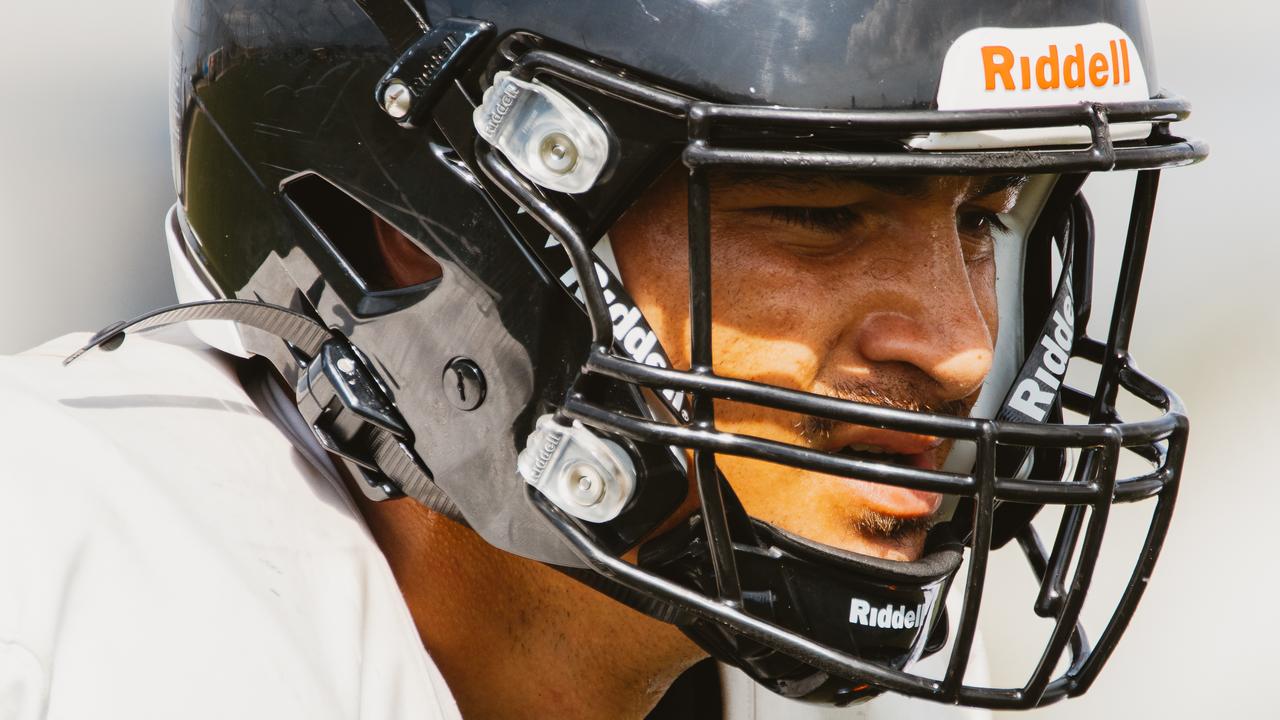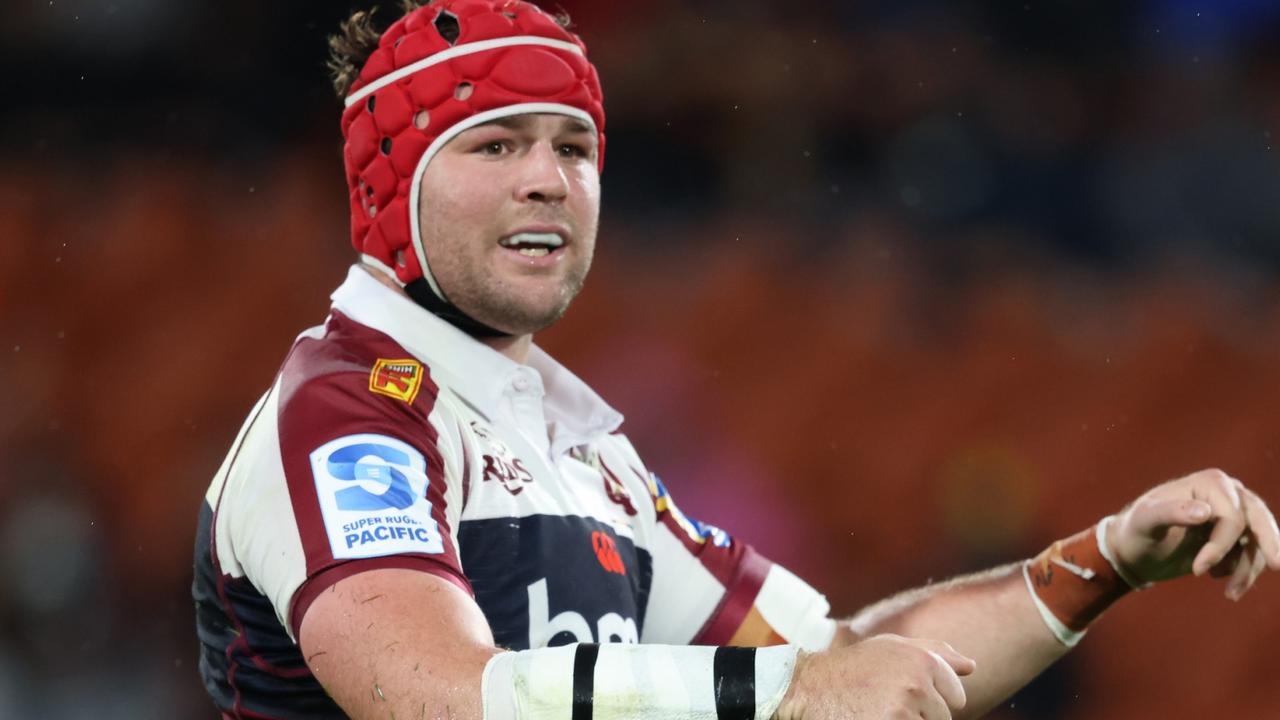Five ways to make the new 18-team Super Rugby competition work
THE Super Rugby expansion plans are a fine old mess, but Iain Payten has come up with five ideas to make the new 18-team competition work.
THE Super Rugby expansion plans are a fine old mess.
To torture a metaphor, a B-double road train was put before the horse with SANZAR’s decision to welcome a sixth South African team and Argentina into Super Rugby — and only then decide how they would both fit.
Political machinations drove that decision and economic reality then ensured the expanded competition got the green light, even without an 18th team decided yet.
Broadcasters from all three nations, including Fox Sports, prefer all three southern superpowers stay involved rather than breakaway competitions.
So it will all go ahead but how on earth can a Super 18 work?
Already the four conference model looks convoluted and unfair. The addition of an 18th team from Asia seems wise but immediately turns into lunacy if it is based in a South African conference.
Like a Chinese puzzle, every time a piece is moved in this bizarre new structure, the logic gap appears somewhere else.
Can it work?
The answer has to be yes, so bearing in mind South Africa and New Zealand got everything they wanted from the Super Rugby expansion talks and Australia got nada (extra wildcard spots is no meaningful win), here are some ideas for the ARU to hammer home at the next SANZAR roundtable.
They may be sound a bit whacko, but hey, this is SANZAR we’re taking about.
1. The Perthfontein Force
Just to start with, let’s draw a line through the USA, Singapore and Hong Kong as the new venues for an 18th team. No matter how fancy the stadium or enthusiastic the host union, if you have to transplant a team to a city, it won’t work. Simple.
As Bob Turner told us in March about his ill-fated NBL franchise the Singapore Slingers, if you don’t have locals in the team, it won’t be supported. Expat communities simply won’t bring in enough gate revenue or drive decent TV money.
European teams? Smoking crack is bad for you, please stop.
No, Japan is the only nation that ticks all the boxes.
It has a rugby history and can, largely, fill its own team. With a spring-summer domestic competition, the Japanese national team — augmented by some imports and coached by Eddie Jones — could play in Super Rugby between February and August and, importantly, be competitive.
The domestic popularity of rugby in Japan is overstated at times (football is king) but it is miles ahead of America and Singapore and it would grow.
Japan is a no-brainer.
But logistics are the next problem. The 18th team is slated to be in a South African conference, and how on earth does that work?
The flight from Tokyo to Johannesburg is 17 hours, and throw in connections to Cape Town or Durban and you’re looking at almost a day flying.
You can’t fly back and forth obviously, so the Japanese are looking at seven or eight weeks on the road every season; presumably in blocks of four weeks at a time.
It is unsustainable and unfair.
So here’s an idea: Put the Western Force in a South African conference, and add Japan to Australia’s.
Think about it. It just makes sense.
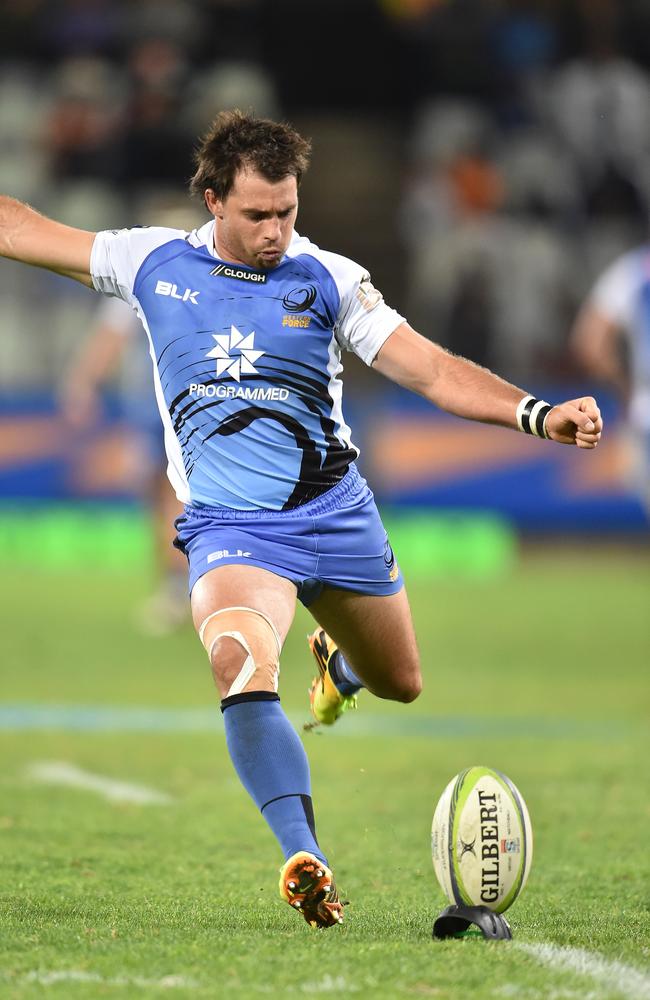
Flights from Perth to Joburg take about nine hours. Still not ideal but bear in mind flying to Sydney takes up to five hours, and travelling to far parts of New Zealand (against whom Australian teams will play five teams a year) can take the Force boys 10-12 hours, with connections.
Instead of massive east-west travel, the Tokyo Tornadoes would fly 8-9 hours north-south to play on the east coast of Australia, something they could conceivably do within weekly or fortnightly blocks.
On friendly latitudinal time zones, the games would be in prime time in Japan instead of the middle of the night; a death zone that ensures moribund ratings and defeats the purpose of trying to grow the game in Asia.
Weekly matches against the running rugby of Aussie teams would also be more suited to Japanese sensibilities than bashfests against Africans.
Culturally, the Force already straddle a line — on and off-field — between Australia and South Africa.
The WA men already have a big group of African imports and a few coaches, and the expat South African community is rapidly growing in Perth.
“Local” derbies against the Stormers and Sharks could presumably still draw decent numbers. The Bulls drew a bigger crowd than the Waratahs this season in Perth.
The Force have a combative playing style that is appreciated by the South African market, both at home and abroad, and have always performed well when touring west.
It may seem like an odd partition from Australia at first, but the Force’s finals chances would be massively boosted each year in smaller conferences featuring several weak teams, and naturally all Force players would remain eligible, front and centre, for Wallaby selection.
2. Earlier kick-offs in Africa
Time zone differences in Super Rugby are not Australia’s friend. South Africa is eight hours behind Australia (and 10 behind NZ), so they can watch all the games. Our night time games are on in the South African morning, and they’ll often schedule their games to line up — one in the arvo and then another at night — so it’s one long day of watching rugby. Great.
Here? Not so much. Not at all, actually.
African night games at 2am or 3am are the bubonic plague of TV ratings. More people watch the test pattern than those games, and it impacts on Super Rugby’s overall ratings picture here.
Games in Aus/NZ average more than 90,000 viewers (more than the A-League) but throw in the zombie-hour Africa games, and it falls down to 50-odd thousand.
That equals less money, and an unflattering picture of rugby as the lesser cousin of Australian footy. Which equals less money. Getting the picture?
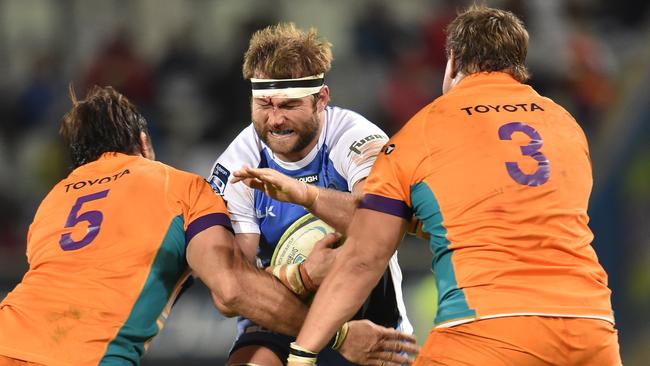
So here’s an idea: have the Africans kick off in earlier slots when playing Australian teams.
Maths isn’t our strong point but a 1.30pm kick-off in Cape Town could see games on our eastern seaboard screens at 9.30pm; far more friendly viewing hours, and rolling on from a 7.40pm game.
Playing at 1.30pm is too early, you argue Frikkies. Not at all.
Rugby was always a daytime game until hijacked by TV’s demand for prime time night content.
Rugby-mad Africans will still attend and watch afternoon matches, however, so moving a 3pm kick-off 90 minutes forward wouldn’t hurt anyone.
Teams and athletes are adaptable. AFL games often kick off at 1.10pm, and Rugby World Cup finals have been delayed until 9pm.
Indeed, ask players what they’d prefer — an after-lunch game or waiting around all day for a night game — and they’d vote for 1.30pm.
The South Africans need only do it a handful of times a year, against visiting Aussie teams.
Here is where the ARU can start to get something back for their support of the sixth African team.
3. Franchise city, baby
It is the BIGGEST, and yet most easily fixed, problem most people complain about with Super Rugby — where the hell do all the teams come from?
If you’re a rugby fan, you’ll know who the Stormers, the Highlanders and the Rebels are but if you are a casual fan, you may as well be talking about Game of Thrones.
In fact, given the choice between two teams from God-knows-where playing rugby or replays of Joffrey and co on catch-up, it’s no contest for the casual fan.
The small-minded SANZAR explanation for the nickname-only stance is: all the teams are a collective of smaller, provincial sides so to identify a side with one city would be inaccurate and unfair and not in the right spirit and … oh, in the name of the seven gods, make it stop.
It’s rubbish of course.
So here’s an idea: call the franchises after the place they come from.
It’s a radical idea but given professional franchises like the Dallas Cowboys don’t need to be just the Cowboys to enjoy the support of all Texans, so too can Super Rugby get with the 21st century.
Here are some basic rules — where a team has its headquarters, where it trains and plays, that’s where it comes from.
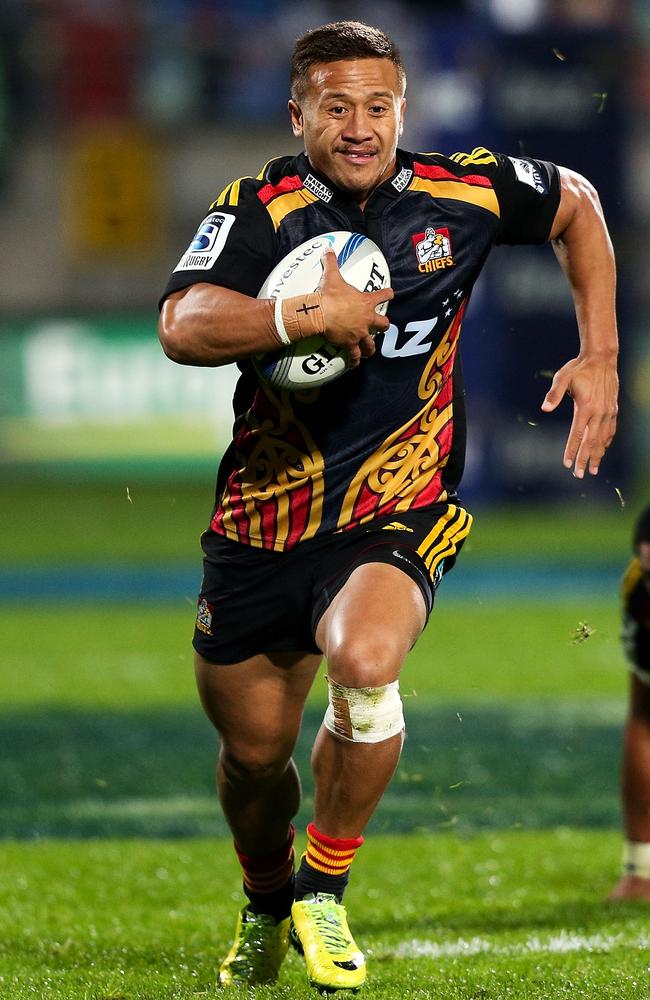
Each team can select whether they want to be known by their city, state or region.
So the Waratahs can stay the NSW Waratahs, and not become the Sydney Waratahs. The Force can be potentially re-brand themselves as the Perth Force, and still be supported by all of WA, just as the Brisbane Broncos are Queensland’s favourite team.
How about the Cape Town Stormers, the Durban Sharks and the Johannesburg Lions. It all starts to clear right up.
Kiwi teams are apparently the trickiest because, a team like the Chiefs notionally captures players from five NPC or Heartland provinces: Waikato, Bay of Plenty, Counties Manukau, King Country, Thames Valley and Taranaki.
Here’s the tip: there are currently twice as many players in the Chiefs squad who play for Wellington in the NPC than who represent BOP.
Old school ties are just not necessary in a modern world of professional athletes; half of whom don’t play for their home team anymore.
Rugby fans don’t care either. Fans from BOP will still support the Chiefs even if their franchise name is the Hamilton Chiefs or the Waikato Chiefs. They know it is still their team.
This is a professional competition — the best in the world. Yet SANZAR is wilfully costing itself of new audiences with the idea that it must blindly pander to the old one.
4. African so-fair-eh?
In the short term, two African conferences is inherently unfair when it comes to the finals picture. Argentina will grow strong but given the weakness of several sides in those two pools, for several years it is likely two strong African sides will top the conferences and both host home finals.
Even with an extra wildcard spot, teams from Australia and New Zealand will have to fly west across the Indian Ocean for a playoff. Since 1996, only three have ever come back victorious from that treacherous assignment.
So here’s an idea: merge the two African conferences on a single points ladder, and give a home final to a wildcard team.
As it stands, the winners of the Australian, New Zealand and two SA conferences will all host a final. The remainder of the four other “wildcard” spots are the next highest points getters; three from Aus/NZ and one from Africa.
Why not give the African conferences only one guaranteed spot, and make the host of the fourth final the wildcard entrant with the most points.
It will probably still be South African but at least it is not guaranteed. Any team from any country could earn it — home finals are valuable on and off-field — and it would be a just reward for a side from a particularly strong conference.
5. Hometown heroes have final say
Under the new Super Rugby structure, the amount of local derbies at home will decrease by one per year, and as with the old system, each conference winner rolls straight into the finals on points.
What if there was a way for a team to potentially get one home clash back, and liven up the finals at the same time with an Americanised re-jig of the playoffs?
So here’s an idea: Super Rugby can have two sets of finals.
One local, and one international.
Instead of the current conference winner being decided by points, a national champion is crowned with a playoff between first and second in the conference.
In the first week of finals, the conference minor premier hosts the game, naturally, and gets the benefit of the home crowd and pockets the revenue.
(Africa can either use the single ladder version, or their two conference winners can play off).
It would be a belter.
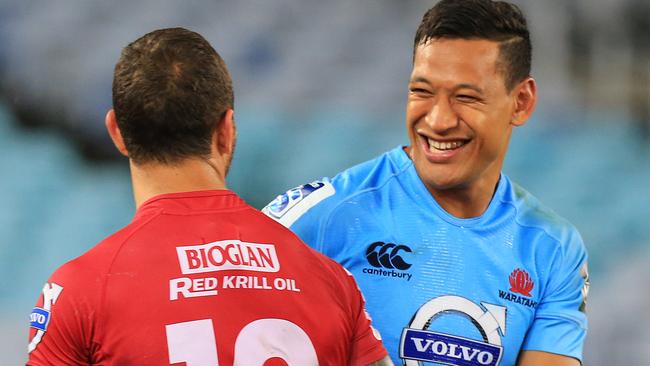
The games would undoubtedly be sell-outs, massive ratings winners and give each country a heated final every year to market. It also gets you one derby back.
After the three national champions are decided, the highest points getter of the regular season left standing still gets their reward — they get a week off.
The other two champions play off (with the highest points getter of regular season as host) and the winner then takes on the well-rested third team.
The host of the final is — you guessed it — decided by who finished the regular season with most points; thus rewarding consistency all year.
It would potentially mean the Super Rugby champion may only play in two finals, but SANZAR can divert the cost savings of one less week of finals (travel, accommodation etc) into the pockets of the winner with a big increase in prize money.
Originally published as Five ways to make the new 18-team Super Rugby competition work


